Scientific Information/Data
Thyroid Hormone Production The thyroid is a small gland with a sizeable role in the body. Its primary function is the concentration of iodine and the production of crucial thyroid hormones thyroxine (T4) and triiodothyronine (T3). T4 is converted to T3 by the body. Between them, T3 is the more potent, biologically active hormone. It regulates the metabolic rate within cells and affects fundamental functions throughout the body. Thyroid hormone production depends on the presence of iodine and the amino acid L-tyrosine in adequate amounts. T4 contains tyrosine and four iodine molecules, while T3 contains tyrosine and three iodine molecules. Production of thyroid hormones can be disrupted by several factors in the environment, including heavy metals (lead, cadmium, mercury, flouride), pesticides, dysbiosis, hormonal fluctuations, antibiotic residues, chemicals, other xenobiotics, or lack of nutrients required for thyroid hormone synthesis.*[1]
The Thyroid Gland’s Manifold Effects The thyroid gland does not work alone; it interacts intimately with the liver, the kidneys, and the hypothalamus, pituitary, and adrenal glands. Communicating via the intricate matrices of the hypothalamic-pituitary-adrenal (HPA) axis and the hypothalamic-pituitary-thyroid (HPT) axis, these key players coordinate the body’s response to stress and its quest for homeostasis.*[1,2]
Thyroid hormone activates over 100 enzymes in the body, exerting a significant effect on growth and metabolic rate. The metabolic rate reflects the body’s transformation of nutrients into energy. Thyroid hormone, and its influence on metabolic rate, plays a fundamental role in appetite, weight maintenance, energy levels and mood, gastrointestinal regularity, tolerance to temperature changes, and healthy hair and nails.*[3,4]
Glandular Support Glandular extracts have a century-old history of supporting healthy thyroid levels. A linear relationship between thyroid extract and serum levels of thyroxine and triiodothyronine in children has been observed.*[3,5]
Micronutrient, Amino Acid, and Herbal Support Production of thyroid hormone is fundamentally dependent on the presence of L-tyrosine and iodine, while conversion of T4 to T3 is facilitated by selenium. Bladderwrack (Fucus vesiculosus), dulse, kelp, and Irish moss are natural sources of iodine for support of endogenous thyroid hormone production.*[6]
The combination of foundational elements with supportive nutrients in XYMOGEN’s T-150 represents a comprehensive approach to thyroid support.*
*These statements have not been evaluated by the Food and Drug Administration. This product is not intended to diagnose, treat, cure, or prevent any disease.
References
1. Baker SM, Bennett P, Bland JS, et al. Textbook of Functional Medicine. Gig Harbor, WA: The Institute for Functional Medicine; 2010.
2. Tsigos C, Chrousos GP. Hypothalamic-pituitary-adrenal axis, neuroendocrine factors and stress. J Psychosom Res. 2002 Oct;53(4):865-71. [PMID: 12377295]
3. Gaby AR. Sub-laboratory hypothyroidism and the empirical use of Armour thyroid. Altern Med Rev. 2004 Jun;9(2):157-79. [PMID: 15253676]
4. Bodó E, Kromminga A, Bíró T, et al. Human female hair follicles are a direct, nonclassical target for thyroid-stimulating hormone. J Invest Dermatol. 2009 May;129(5):1126-39. [Epub 2008 Dec 4] [PMID: 19052559]
5. Weill J, Debruxelles P, Fulla Y, et al. [Management of primary hypothyroidism in childhood treated with thyroid extract (author’s transl)] [Article in French]. Arch Fr Pediatr. 1980 Jan;37(1):29-34. [PMID: 7469681]
6. Krinsky Dl, LaValle JB, Hawkins EB, et al. Natural Therapeutics Pocket Guide. 2nd ed. Hudson, OH: Lexi-Comp, Inc.; 2003.


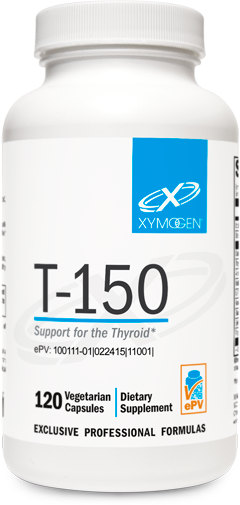
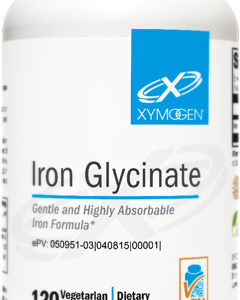
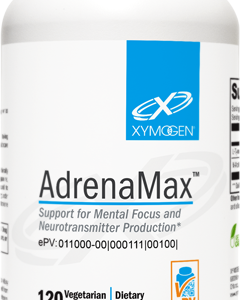
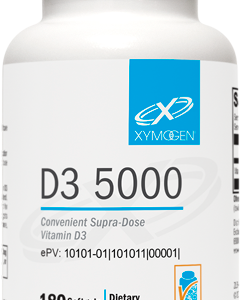
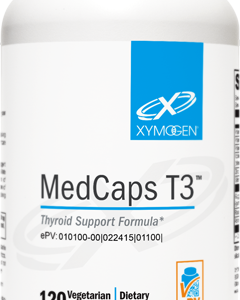
Reviews
There are no reviews yet.